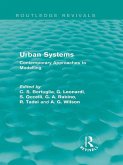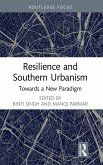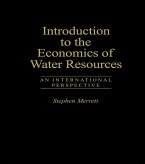How should we value the environments we inhabit?
What ethical resources exist to better appreciate the world around us?
In this book three of the leading writers on environmental philosophy in the US and UK offer an introduction and rigorous assessment of the ways in which the natural and cultural environments we inhabit are valued. The book is written in a clear and accessible style and is aimed at a wide range of disciplines, including philosophy, politics, economics, geography, environmental studies and social theory, as well as the general reader concerned with our current environmental problems. [[It does not require antecedent familiarity with the literature in ethical theory or environmental philosophy.]]
The book develops powerful criticisms of existing approaches to environmental valuation, both those developed in environmental economics and policy-making, and the alternatives that are offered in much mainstream environmental philosophy. The authors defend an account of environmental values which recognises the centrality of human relations with and responses to the environments in which we live, while rejecting attempts to reduce such relations and responses to preferences that can be captured by monetary values. Topics include: human welfare and the natural world, consequentialist approaches to environmental choice, environmental equity and justice, value pluralism, intrinsic value, the role of history and narrative in environmental valuation, biodiversity and sustainability.
This volume offers a distinctive perspective on environmental ethics and policy-making that is sensitive to the real practical conflicts and dilemmas involved in environmental decisionmaking. The result is a book that will be invaluable to those concerned with grappling with the hard choices that face us as the scope and importance of environmental problems becomes more pressing and more global.
What ethical resources exist to better appreciate the world around us?
In this book three of the leading writers on environmental philosophy in the US and UK offer an introduction and rigorous assessment of the ways in which the natural and cultural environments we inhabit are valued. The book is written in a clear and accessible style and is aimed at a wide range of disciplines, including philosophy, politics, economics, geography, environmental studies and social theory, as well as the general reader concerned with our current environmental problems. [[It does not require antecedent familiarity with the literature in ethical theory or environmental philosophy.]]
The book develops powerful criticisms of existing approaches to environmental valuation, both those developed in environmental economics and policy-making, and the alternatives that are offered in much mainstream environmental philosophy. The authors defend an account of environmental values which recognises the centrality of human relations with and responses to the environments in which we live, while rejecting attempts to reduce such relations and responses to preferences that can be captured by monetary values. Topics include: human welfare and the natural world, consequentialist approaches to environmental choice, environmental equity and justice, value pluralism, intrinsic value, the role of history and narrative in environmental valuation, biodiversity and sustainability.
This volume offers a distinctive perspective on environmental ethics and policy-making that is sensitive to the real practical conflicts and dilemmas involved in environmental decisionmaking. The result is a book that will be invaluable to those concerned with grappling with the hard choices that face us as the scope and importance of environmental problems becomes more pressing and more global.
Dieser Download kann aus rechtlichen Gründen nur mit Rechnungsadresse in A, B, BG, CY, CZ, D, DK, EW, E, FIN, F, GR, HR, H, IRL, I, LT, L, LR, M, NL, PL, P, R, S, SLO, SK ausgeliefert werden.
"Environmental Values is an excellent book, easy to read, and relatively short." -- Richard Haynes, Ecological Restoration, Vol. 26, No. 1
Environmental Values covers an extraordinary amount of ground with clarity and precision. It distils key ideas from leading thinkers in environmental philosophy into one tightly argued volume. It offers both careful, accurate summaries of existing positions and an original, stuimulating position of its own. I highly recommend it. Clare Palmer, Geographical Journal
Environmental Values covers an extraordinary amount of ground with clarity and precision. It distils key ideas from leading thinkers in environmental philosophy into one tightly argued volume. It offers both careful, accurate summaries of existing positions and an original, stuimulating position of its own. I highly recommend it. Clare Palmer, Geographical Journal









